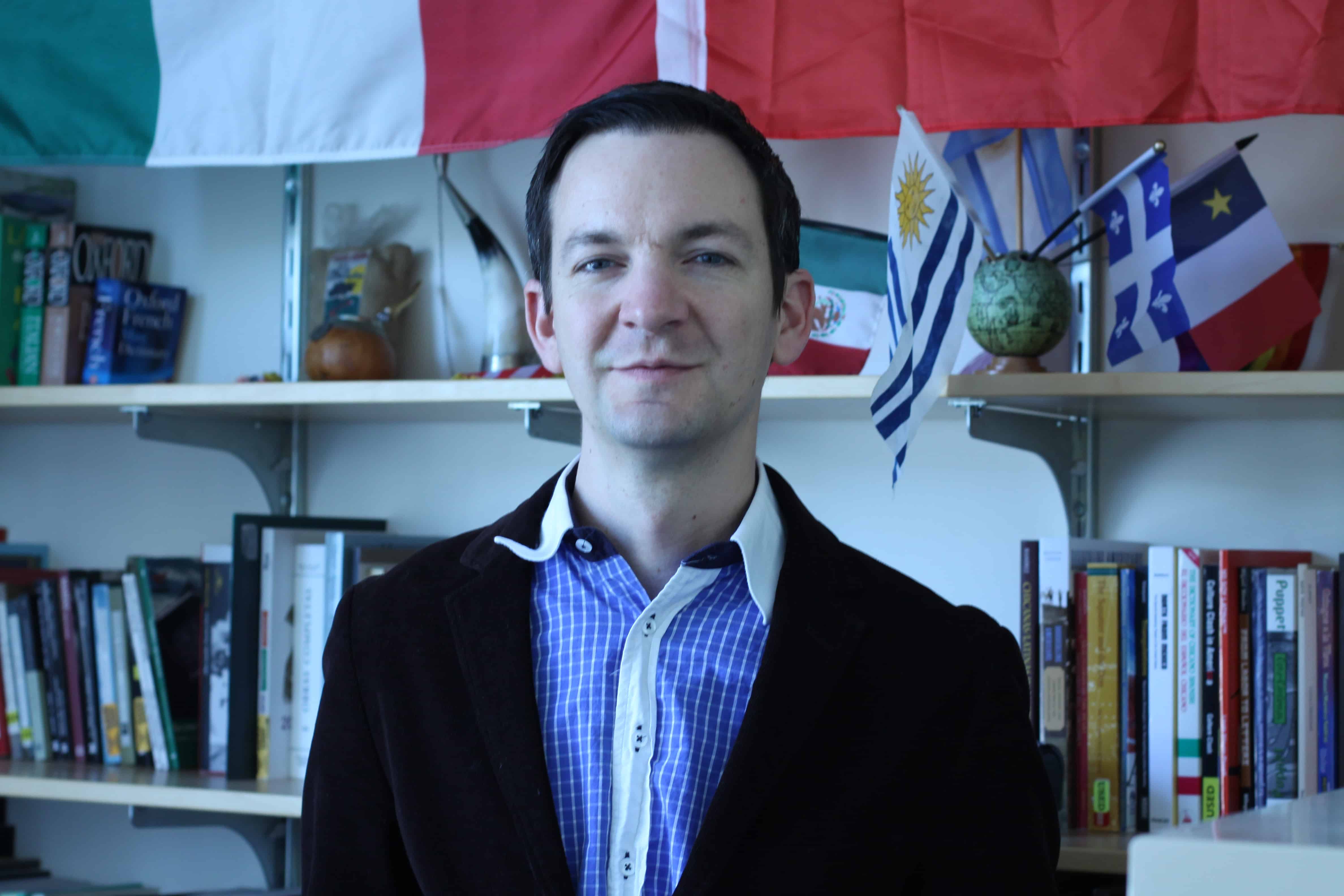For a budding Queer Studies or language scholar, there are few greater joys to be found on this campus than popping in for a chat with Dr. Charles St. Georges in his Fellows office. Whether one wishes to debrief following an edifying talk from a visiting speaker or to just discuss the definition of “the abject,” St. Georges is always an approachable, willing conversationalist.
A brand new addition to Denison’s Spanish department, St. Georges brings a breath of fresh, conceptually challenging air to the Modern Languages program.
Background
With a background in gender studies, French and Spanish linguistics and film theory at his disposal, any student in St. Georges’ Spanish communication skills class is in for a challenging treat—and the man behind the Ph.D is a pleasant character.
As with many Denison professors, St. Georges did not march a direct path from college to a career in higher education. After receiving a Bachelor’s in Spanish with a minor in Russian, St. Georges spent some time working in an ER as an interpreter.
Describing the experience as “informative,” St. Georges reflected on that time in his life, saying, “That year, I realized I wanted to do something different with my Spanish.”
Through his studies at Arizona Stateand under the tutelage of David William Foster, one of the premier scholars of gender studies as applied to Latin American cultural studies, St. Georges realized he desired a more analytical application for his linguistic interests.
Gender in Cinema
This semester, which marks the second semester he has been a part of the Denison faculty, St. Georges is teaching a senior seminar entitled “Gender in Latin American Cinema.” Engaging him in a conversation about the films and theorists under discussion in this class is bound to spark some very animated and high-level discourse.
Along with traditional cinema, St. Georges also studies animation, an area of cinema studied by Laura C. Harris speaker and fellow gender theorist Jack Halberstam. St. Georges remarks, “Animation is one of the richest sites to study ideology.” However, he films on St. Georges’ syllabus are mostly live action films showcasing the various ways that Latin American filmmakers have told stories about gender and sexuality.
Though St. Georges laments that the Latin American focus of the course leaves out queer Spanish filmmakers like Pedro Almodovar, he remains steadfast that the films covered by his course should prove fertile content for discussion. One of the first films up for viewing, which is accessible through the library A/V reserve, is 1997’s Esmeralda Comes By Night, a film about a woman with multiple husbands.
World travel
Appropriately for a scholar of Modern Languages, St. Georges is very worldly, both in experience and in heritage. Of French-Canadian decent, St. Georges was born in a town outside Las Vegas, and has done a fair amount of traveling abroad, even to countries where he had no knowledge of the language, such as Hungary.
“I learned pretty quickly how to apologize and say, ‘I don’t know how to speak your language, do you know how to speak any of my languages?’” says St. Georges, reflecting on his time visiting Hungary.
Though he has done a fair bit of traveling, the amount of stops on his professorial journey is fairly small. His position at Denison is the first tenure-track position St. Georges has managed to get, but already he has found a lot of great things to say about the school and its students.
Speaking about his experience teaching Spanish 211, St. Georges said, “I’m impressed with the general level of proficiency of students here. The level of proficiency of students in 200-levels at Denison is on par with students in 300-level courses at Arizona.”
Though he has a lot of good things to say about the Spanish department as it stands now, St. Georges admits some aspects of the Spanish program could benefit from the grammatical and linguistic rigors of Denison’s French and German programs.
If you ever find yourself with the itch to learn more about St. Georges’ field of study or to just have a casual chat about media and culture, never hesitate to pop by his office, located on the third floor of Fellows. Students of Spanish should be on the look out for St. Georges’ course offerings when the registrar releases next fall’s course schedule!

